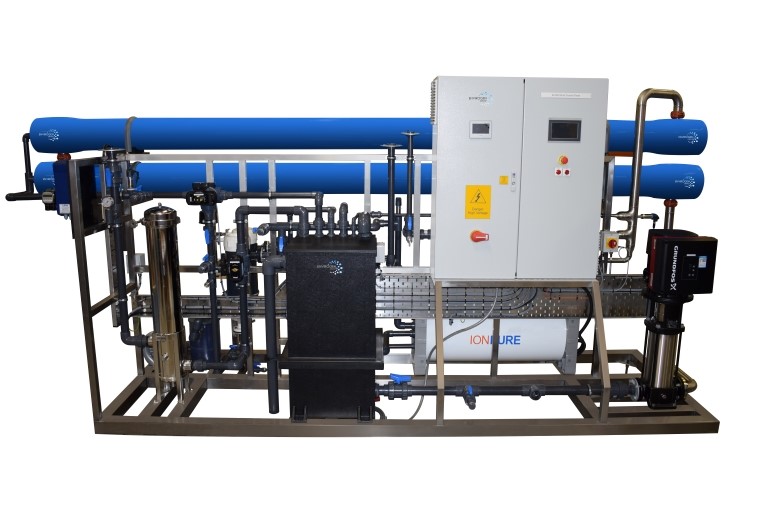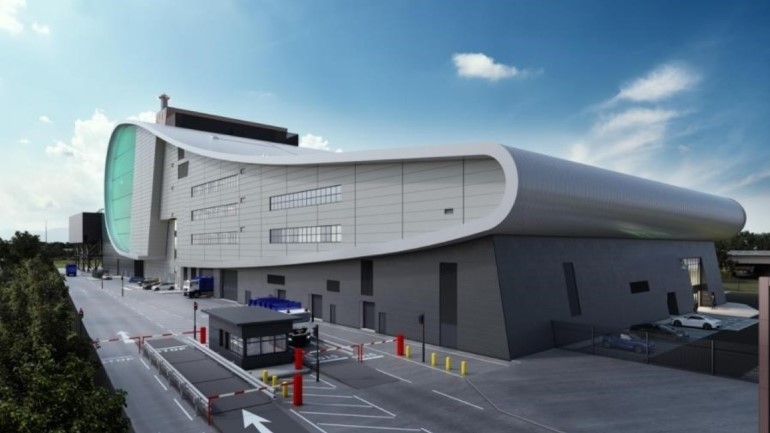Envirogen Group has been awarded a £1m+ contract by Fortum Glasgow Limited to demineralise water for the boilers at its new South Clyde Energy Centre (SCEC) in Glasgow.
This EfW sector project will be achieved by using two of Envirogen’s compact Eco MultiPro units, complemented by pre-treatment and polishing vessels.
The contract will provide the ultrapure water quality needed to generate 45 megawatts electric (Mwe) of lower carbon electricity from residual, non-recyclable household waste; enough to power the equivalent of around 70,000 homes every year.
And by incinerating household waste to heat the boilers, the plant will prevent up to 350,000 tonnes of household waste going to landfill annually – the equivalent of the waste arising from some 380,000 households. It will therefore meet the Scottish government’s new landfill measure to ban biodegradable municipal waste going to landfill from December 31st 2025 onwards.
Fortum decided on the Envirogen system because of Eco MultiPro’s success in other EfW energy operations, including Vital Energi’s Drakelow EfW plant near Burton-on-Trent, Staffordshire.
The complete package from Envirogen comprises its Eco MultiPro based demineralised water system design, supply, installation, commissioning, training and extended warranty. Following commissioning, the plant will produce treated water quality of <0.2 Microsiemens/cm, and <20 ppb Silica at up to 30m3/hr flowrate, achieved by a flow from each unit of 15m3/hr.
Eco MultiPro is a skid-mounted reverse osmosis and electrodeionisation (RO-DI) water treatment system that delivers high purity water, with low operating costs, chemical free operation and a compact design to save space.
Envirogen will deliver the units and pretreatment solution by summer next year, install the equipment in the autumn of 2025 and commission it in January 2026.

Sustainable
Ilkka Toijala, Head of Fortum UK, comments: “Envirogen worked with our technical team to develop a solution that provides a plant capable of supplying reliable water in a time-efficient and cost-efficient manner, aligning with our sustainability objectives. That was helped by Envirogen having a long and proven track record in industrial water treatment.
“We assessed the company’s other Energy from Waste MultiPro solutions and concluded that Eco MultiPro would be ideal water treatment technology for the South Clyde Energy Centre.”
Essential
Demineralised water will be essential for the trouble-free operation of the boilers and turbines.
Simon Radford, Head of Sales, Envirogen Group says: “Steam turbines are highly sensitive to corrosion and scale build-up. Scale-forming ions and suspended solids from mains water can deposit on turbine blades and within pipework, risking damage. Using demineralised water is absolutely crucial. Despite the steam cycle being a closed system, modern boilers still need a steady supply of demineralised water to compensate for inevitable losses due to steam leaks, blowdown and other operational processes.”
Eco MultiPro’s three-stage treatment
Heating water is energy-intensive, and scale formation reduces efficiency. Envirogen’s answer to that is the Eco MultiPro, with its three-stage membrane treatment process – reverse osmosis, gas transfer membranes and continuous electrodeionisation (CEDI). Together, these stages remove all scale-forming ions, ensuring optimal performance and low operating costs.
High quality, no hazardous chemicals
Radford comments: “We worked closely with the plant designer, AFRY, from an early stage to develop a membrane-based solution to match the sustainability needs of the plant. The membranes will allow Envirogen’s ‘state of the art’ MultiPro units to produce high quality demineralised water without having to resort to the use of hazardous chemicals on site.
”Overall, the robust, reliable design focuses on whole life operating costs for both utility and maintenance over a 30-year design life.”
Envirogen’s membranes are durable and long-lasting, and so deliver considerable cost savings because they need replacing less often. Additionally, the RO-CEDI skid requires no chemical regeneration, relying instead on a small amount of electricity to renew the membranes. The entire demineralisation process carries a much lower operating cost compared to a conventional resin-bed solution, especially as, in this case, it utilises electricity that is generated on-site.



